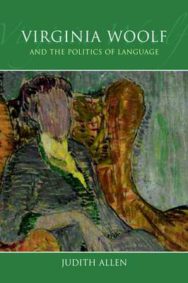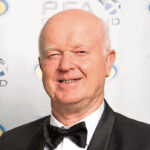
ABOUT THIS BOOK
PUBLISHER: Edinburgh University Press
FORMAT: Paperback
ISBN: 9780748664856
RRP: £19.99
PAGES: 144
PUBLICATION DATE:
September 24, 2012
BUY THIS BOOK
As an Amazon Associate and Bookshop.org affiliate we earn from qualifying purchases.
Virginia Woolf and the Politics of Language
Judith Allen
In the context of today’s significant struggles with ‘fundamentalisms’, media consolidation, and the stifling of dissent, Allen’s close readings of Woolf’s writings focus on their relevance to our current political situation. Judith Allen approaches Woolf as a theorist of language as well as a theorist of reading, and shows how her writing strategies – sometimes single, resonant words – function to express and enact her politics. Allen also shows how Woolf’s complex arguments serve to awaken her readers to the lack of transparency in the dissemination of information, the complexities and power of language, and the urgent need for critical thinking. Key features: close readings of Woolf’s essays include “Montaigne”, “A Room of One’s Own”, “Craftsmanship”, “Three Guineas” and “Thoughts on Peace in an Air Raid”; sources range from Michel de Montaigne to the Dixie Chicks, from the Northcliffe Press newspaper empire of World War I to today’s mainstream newspapers, Rupert Murdoch’s empire, satirical news shows like “The Colbert Report” and “The Daily Show”, and social media and the blogosphere.
Reviews of Virginia Woolf and the Politics of Language
Guided by Montaigne's trenchant question, 'What do I know?', Judith Allen shows how the lexicon of war in the twenty-first century can be revealed in all its lamentable 'truthiness' by paying attention to what Virginia Woolf's essays have to say about the power of language to transform our world. This is a book that makes refreshingly clear Woolf's deep political engagement with the urgent issues of war and peace.–Mark Hussey, Editor, Woolf Studies Annual
Judith Allen
Judith Allen leads the Virginia Woolf Discussion Group at Kelly Writers House at the University of Pennsylvania.









